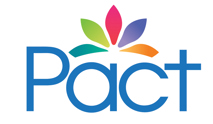19/05/2023
News
Resettlement service achieves ‘excellent’ outcomes for women leaving prison
An evaluation of Pact’s resettlement service for women leaving prison in London and Kent has revealed ‘excellent’ outcomes in supporting individuals to successfully reintegrate into the community and reduce their likelihood of reoffending.
The report, published this month, focuses on the experiences of women supported by Pact’s Journeys to Freedom service between March 2021 and March 2023 and assesses the impact of support on the women’s accommodation; employment, training and education prospects; family and relationships; and health and wellbeing.
Women often face a very different set of challenges to male prisoners, complicated by dependent children and histories of abuse, trauma and/or substance misuse. More than half of those leaving prison are reconvicted within one year, a figure that rises to 73% for sentences of less than 12 months. Appropriate accommodation is a particular concern and can have a significant impact on women’s mental health, ability to care for their children, and employment prospects.
Funded by City Bridge Trust, Colyer Fergusson Charitable Trust, and London Housing Foundation, Journeys to Freedom offers holistic, person-centred support for women leaving four prisons in London and the South East: HMP Send, HMP Downview, HMP Bronzefield and HMP East Sutton Park. The programme supports vulnerable women to navigate the transition from prison to the community in three stages: prior to their release, through the gate on the day of release, and in the community. The women can also access Pact welfare grants to purchase essential items such as clothes, bedding, furniture and appliances.
The service combines advocacy, personalised action plans, practical and emotional support, multi-agency working, financial assistance, and access to training while offering a consistent and trusting relationship with a Pact Keyworker to encourage the development of confidence and self-esteem. The evaluation found that:
- 95% of those supported were either living in their own property or in supported accommodation by the end of the support period.
- In over two-thirds of closed cases analysed, women were successful at gaining employment by the end of the support period.
- 100% of women felt that the service had significantly improved their mental health and reduced their anxieties.
- Where women were referred for legal support regarding child contact, all were successful in re-establishing contact with their child(ren), which we know significantly reduces the likelihood of reoffending.
During the evaluation process, women identified that support should ideally begin before leaving custody and as early as possible in order for them to prioritise wellbeing, housing and relationships. Participants also recommended additional support to understand and develop knowledge around their legal rights and responsibilities, managing substance misuse issues, and building new relationships in their local communities.
Viv, one of the women supported by Journeys to Freedom, told us: “I left prison with no accommodation and was very anxious about everything. But with my Keyworker’s help, finally, a referral was made, and within two days, I got two-bedroomed accommodation with my son. I feel a hundred times better because I have my own space, I have my few belongings in one place, and I have my son with me. I just feel me again.”
Pact’s Director of Services Tina Parker commented:
“Many women in prison are also victims themselves, and around three-quarters report experiencing mental ill health. The rate of self-harm among female prisoners is now 10 times higher than their male counterparts. We also know that for those leaving prison without settled accommodation, around 65% are likely to reoffend. This is bad news for individuals and for society as a whole. Journeys to Freedom ensures women have the very best start to life in the community and empowers them to manage their own transition from prison as they develop in confidence and rebuild vital family ties.”
Giles Shilson, Chairman of City Bridge Trust, said:
“As this report shows, the resettlement service delivered by Pact and part-funded by City Bridge Trust has had a profound effect on improving outcomes for women leaving prison. The comprehensive support before, during and after release means the vast majority of those on the scheme are in secure accommodation and most are in employment, both important factors in empowering women to put prison behind them and avoid falling into the trap of reoffending.”
Nicholas Fisher, Chair of Trustees at Colyer-Fergusson Charitable Trust, said:
“We’re inspired and encouraged by Journeys to Freedom and the work that Pact has been able to do to help women in prison and their families to move forward and build better lives, with real options for a meaningful and positive future within their communities.”
Executive Chair at London Housing Foundation, Ian Brady, said:
“The London Housing Foundation have been long-term supporters of Journeys to Freedom. This report clearly demonstrates the significant impact the work has had for women leaving prison. It should provide a springboard for more work in this area.”
You can find out more about Journeys to Freedom at https://www.prisonadvice.org.uk/journeys-to-freedom

